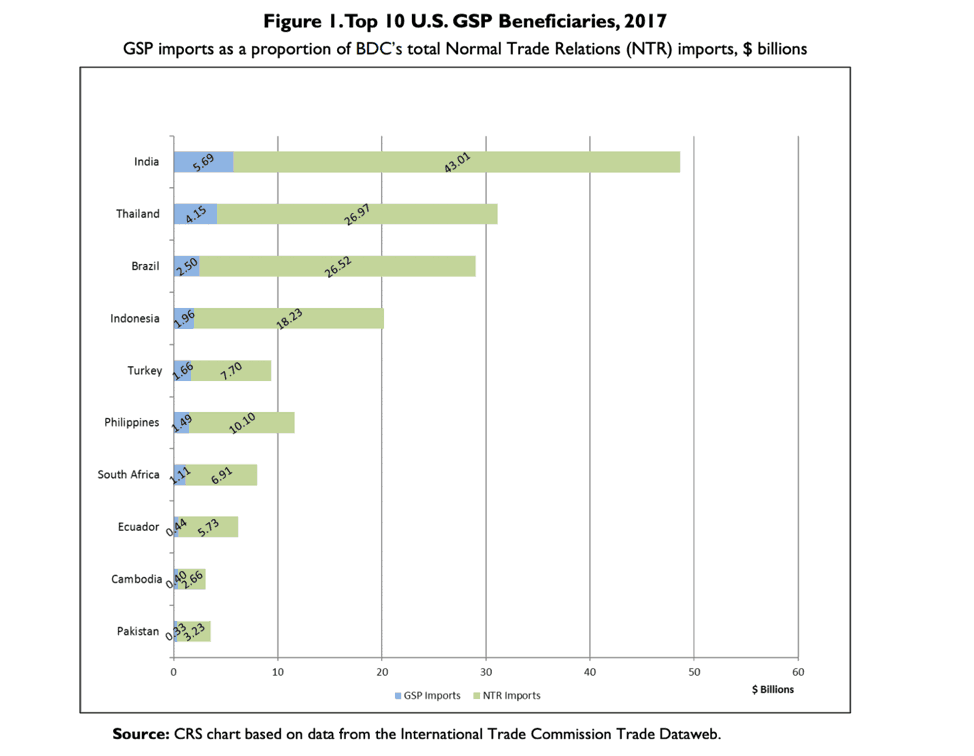The Office of the U.S. Trade Representative (USTR) has announced that Turkey and India are on the verge of losing their GSP status.
U.S. Trade Representative Robert Lighthizer announced on March 4th that the U.S. plans to cancel India’s and Turkey’s designations as beneficiary developing countries under the GSP because they no longer comply with the statutory eligibility criteria.
India’s termination from its GSP status follows its incompetence in providing the U.S. with pledges that it will grant fair and reasonable access to its markets in numerous sectors. Turkey’s termination from its GSP status follows a judgment that it is economically developed and should no longer benefit from preferential market access.
What is GSP Status?
The Generalized System of Preferences (GSP) is a U.S. trade program designed to promote economic growth among developing countries by providing preferential duty-free entry to the U.S. on numerous goods. GSP was instituted on January 1, 1976, by the Trade Act of 1974.
Under the U.S. GSP program, certain products can enter the U.S. duty-free if beneficiary developing countries meet the eligibility criteria established by Congress.
Why is Turkey losing its GSP status?
The decision to end Turkey’s GSP privileges came after the Trump administration decided that Turkey was no longer a developing country that qualified for the program. However, it’s being speculated that this action towards Turkey might be a consequence of their possible S-400 missile launch system purchase from Russia, and Turkey’s decision to impose additional tariffs on U.S. goods when the Pastor Andrew Brunson crisis grew last year.
Why is India losing its GSP status?
India’s termination came after New Delhi failed to live up to the GSP program’s requirements that it provide equitable access to its market for a range of U.S. goods. The U.S. dairy and medical device industries had requested an investigation and review of India’s GSP privileges, arguing that India’s exports to U.S. agenda was unfairly blocking U.S. industry exports.
What do these GSP changes mean for countries involved?
The decision would undoubtedly increase tensions between the U.S. and both countries. Generally, duty implementations are not one-sided and the opposing party imposes retaliation. We’ve seen this happen when the U.S. decided to implement import tariffs on Turkish steel and aluminum goods in the summer of 2018.

Source: EveryCRSReport.com
As we observe the above chart of the Top 10 U.S GSP Beneficiaries, we see that India is number 1 and Turkey is in fifth place, respectively. However, as we look closely at the chart, their GSP status allowed exports that are not entirely major when compared to their total exports to the U.S. Additionally, when the production costs come into the picture, it can be said that India and Turkey still can remain competitive in the U.S. market. Nonetheless, these changes would influence U.S. buyers to seek alternative markets to purchase their imports due to increasing duties.




